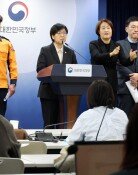MIKTs
The term BRIC, referring to Brazil, Russia, India and China, was coined by Goldman Sachs executive Jim ONeill in 2001. He forecast that the four economies would overtake Germany, Britain, France and Italy to join the ranks of the worlds top six economies by 2050. Many doubted his prediction at the time because the four were behind advanced economies in many aspects, though large in size and having great potential.
ONeills newest term is MIKT, referring to Mexico, Indonesia, Korea and Turkey. Saying the four will lead the world economy next year, he included them in the group of growth economies, or those that have their own growth engines and differ from emerging economies that depend on G7 countries for growth. He emphasized that investors will learn the difference between growth and emerging economies next year.
Indonesia and Turkey have gotten the most attention among MIKT. With the worlds fourth-largest population, Indonesia achieved economic growth of 4.5 percent last year despite the global economic crisis and should hit more than six percent this year. Abundant natural resources explain the Southeast Asian countrys remarkable growth. Despite the European fiscal crisis, Turkey is set to for robust growth of 8 percent this year. Korea and Mexico were chosen as growth countries considering their rapid economic recovery despite the global economic downturn.
Koreas inclusion in the group of growth economies raises expectations on the countrys future. As ONeill forecast, the BRICs emerged rapidly and achieved eye-opening economic development. China was expected to surpass Japan as the worlds second-largest economy around 2015, but did so this year. The Korean economy was the world`s 11th largest in 2002, but was overtaken by India in 2004 and again by Brazil and Russia in 2006. Will the MIKTs follow in the footsteps of the BRICs? When Korea became No. 11 in 2002, the country bragged that it would soon break into the worlds top 10. This turned out to be a daydream, however. The National Assembly remains mired in physical brawls among lawmakers. Worse, if the government surrenders to populism, the countrys economic prospects will be far from rosy.
Editorial Writer Park Young-kyun (parkyk@donga.com)







